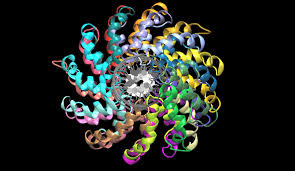I receive a lot of emails from people who’ve learned about OneShared.World or read my books and want to share their stories and explore possible collaborations. All of them move me but a few blow my socks off. I was so touched by the incredible story of Saaim Khan, a Michigan high school student, that I invited him to write a guest post on my blog. I hope you will read his incredible story. We’re actively exploring a OneShared.World partnership with Saaim and working to help secure a summer traineeship for him at one of the world’s leading medical schools. Please let me know if you’d like to support or join either of these collaborations. Saaim and what he stands for are, I believe, the perfect antidote to the despair so many people around the world are feeling. As long as young people like Saaim and the incredible young OneShared.World volunteers are fighting for a better future, I have every confidence we’ll be able to build it.
Here is my first ever guest blog, written by the incredible Saaim Khan (with an OK from his mother to have this posted):
If you’ve ever visited a doctor, you might have heard your doctor mention a family history of high blood pressure (hypertension), breast cancer, or any one of the numerous hereditary conditions out there. Now, you may have been concerned and possibly even curious about what the genetic markers for the condition are. With the rise of personal genome sequencing, I would argue that you should be curious—after all, it’s your DNA and your health. Wouldn’t it be great if there was a way to investigate genetic disorders from the comfort of your home?
Well, turns out that there is. I’ve put together 2 free online courses to help anyone, anywhere self-initiate research on a cause that matters to them, regardless of background experience or knowledge level.
How did it all start?
When I was 4 years old, I was diagnosed with sudden hearing loss (moderate loss in my right ear and severe loss in my left ear). For over ten years, my parents and I traveled from specialist to specialist trying to get answers regarding the origins of my condition. Yet, we received no answers and constantly hearing the same word “idiopathic” (unknown cause) over and over again, was incredibly frustrating. As I grew older, that lack of clarity is what drove me to research hearing loss and gene expression in diseases. But finding a research position was not easy. It took lots of searching and over 650 emails to local professors before I was fortunate enough to land one. I’m eternally grateful for that opportunity—over the past two years, my research into understanding the complex biomechanics of hearing loss has pushed me further along in my quest to develop an accessible and effective hearing loss therapy than I could have ever imagined.
But if I, a kid from a middle-class background, found it difficult to get involved with research, there must be countless less-resourced individuals out there who have no idea how to investigate a topic they care about. That realization was what sparked my drive to liberate research from its institutional shackles and get it out to the general public.
In June 2019, I launched my first free online course called Conducting Introductory Computational Biology Research on the online learning platform Udemy. The purpose of this course is to provide an avenue for any member of the general public, whether they be in middle school, high school, college, or the workforce, the opportunity to identify markers for just about any genetic disease. Over the past year and a half, over 2,900 people from 114 different countries and a wide variety of backgrounds have enrolled. In July 2020, I launched my 2nd free Udemy course, Structural Biology 101: A Beginner’s Guide, as a sequel to my first course. In this course, students are able to delve into more advanced research methods geared towards drug identification for a wide range of diseases. In the past 5 months, over 750 students have enrolled from 89 different countries.
Through my experiences teaching research on Udemy, I’ve had the incredible privilege and honor to work one-on-one with students from Algeria, Bangladesh, India, and numerous other countries. Just over past 18 months, I’ve witnessed how research can open doors for people from all walks of life, regardless of their past involvement with research and scientific investigation. From the 14-year-old middle schooler to the seasoned postdoc researcher, everyone has something to gain from research.
I hope that these courses can serve as the foundation for a global movement to democratize global access to meaningful research. I envision a future where anyone, anywhere can self-initiate research that matters to them. With OneShared.World, we’ll be able to harness the phenomenal Deep Dive Toolkits so that people all over the globe can bring their research ambitions to life through the lens of interdependence. Community-driven research is the new cornerstone of scientific development and with a possible partnership in the works, that future is gradually coming to life.
Conducting Introductory Computational Biology Research: https://www.udemy.com/course/conducting-intro-comp-bio-research/
Structural Biology 101: A Beginner’s Guide: https://www.udemy.com/course/sbio-101/



